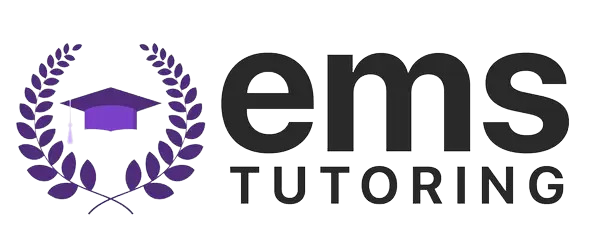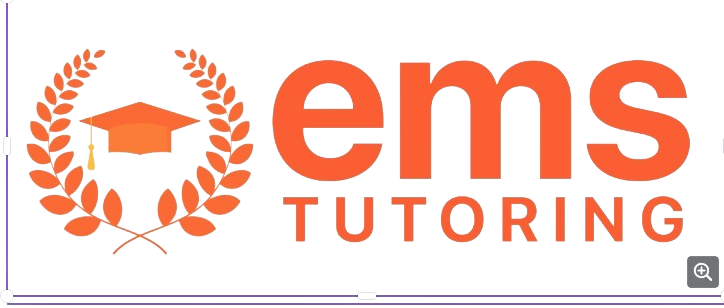Feeling nervous about your upcoming GCSE exams? No worries, you’re not alone! In this article, you’ll find strategic tips and effective methods that can help you conquer those jitters and ace your GCSE exams. Covering a range of methods from creating a realistic study schedule to learning how to relax your mind, this insightful piece promises to be your trusted guide as you gear up for those all-important tests. It has been written with your needs in mind, focusing on the best ways to prepare, perform, and prosper. Happy reading!
Understanding the Course Content
To effectively prepare for your GCSE exams, it’s vital to fully grasp the course content. This stage is typically more than just reading the study materials. It entails deeper interactions with the content to reinforce understanding.
Identifying main topics
Every course has its core topics, and your first task is identifying these. These are usually the bulk of the exam, and therefore, it’s essential to be versed in them. You can pinpoint these topics from your curriculum, syllabus, or through consultation with your teachers.
Understanding expectations and exam format
Every exam has its unique expectations and format, which become accustomed to familiarizes you with the GCSE exam setting. Such understanding minimises surprises during the actual examinations. You will know exactly how the papers are structured, the types of questions asked, and the marking scheme applied.
Familiarizing with the required knowledge and skills
Understanding not just the what but also the how for your exams is vital. Each subject or topic has its specific skills necessary to grasp. Identify and familiarize yourself with these skills as they are often interlinked with the understanding and application of the course content.
Develop a Study Plan
Without a solid plan in place, studying can be havoc. Having a concrete study plan not only helps in time management but also ensures all relevant course contents are adequately covered.
Setting realistic and achievable study goals
Set clear and achievable goals for your study. These set goals should help you grasp the course content effectively before the examination period. However, make sure these goals are realistic to avoid unnecessary pressure.
Creating an effective study schedule
An effective study schedule honors your personal needs and other commitments while enabling effective study periods. It should be a balance between study periods, breaks, sleep, and other activities. Ensure that it’s also flexible to accommodate any unpredicted changes in your day-to-day activities.
Allowing time for breaks in between study sessions
Taking breaks is not only refreshing but it also promotes effective learning. Course content can be quite dense, and attempting to consume too much content without breaks can be unproductive. So, your study schedule should have significant breaks in between study sessions.
Use of Effective Study Techniques
Effective study techniques increase your chances of understanding and retaining course content. These techniques involve various methodologies that have been scientifically proved to promote learning.
Employing active recall and spaced repetition
Active recall is a technique where you study by constantly quizzing yourself on the subject. Spaced repetition involves reviewing study content after increasing intervals. Both methods have been scientifically proved to aid in the long-term retention of knowledge.
Using of past exam papers
Past exam papers are an excellent resource for understanding what to expect in your exams. They provide a practical way to test your understanding and application of the course content.
Conducting group study sessions
Studying in a group can be highly beneficial. You get to share ideas, explain concepts to others (enhancing your understanding), and learn from others. So, organize group study sessions with your classmates.
Creating a Conducive Study Environment
The environment in which you study greatly impacts your concentration levels and, by extension, your understanding of the course content.
Identifying a quiet and organized location
A quiet background helps in concentrating. Make sure your study location is free from physical and noise distractions to maximize your focus.
Keeping study materials and resources accessible
Having your materials and resources within reach saves time which would have been spent in search of them during study time. You also make your study sessions more productive.
Adapting a minimalist approach to reduce distractions
Having only what you need during your study time helps maintain your focus. So have a minimalist approach towards your study environment.
Physical Health and Well-being
Your health and wellbeing directly impact your study habits and understanding of the content.
Maintaining a balanced diet
Eating healthy food gives your brain the energy it needs to function optimally. Include foods rich in protein, fiber, and vitamins in your diet.
Ensuring adequate rest and sleep
A lack of sleep can lead to a lack of concentration and thus ineffective learning. So ensure you are getting adequate sleep and rest.
Regular exercise and stress relief activities
Engage in regular exercise and relaxation activities. Such activities not only boost your health but also your brain functionality.
Emotional and Mental Preparedness
Being emotionally and mentally prepared boosts your confidence and consequently performance.
Developing a positive mindset
A positive mindset towards your study and the exams boosts your morale and motivation. So develop a positive attitude towards your GCSE exams.
Employing relaxation and meditation techniques
Relaxation and meditation promote your mental wellbeing, which is crucial for understanding the course content and performance in your exams. So, find time to relax and meditate.
Seeking emotional support when necessary
Having emotional support during this period is helpful. Your family, friends, and teachers can offer emotional support. Don’t hesitate to reach out when you feel the need to.
Utilizing Revision Guides and Resources
Utilize every resource at your disposal to bolster your understanding of the course content.
Selecting relevant textbooks and workbooks
Textbooks and workbooks offer additional knowledge and practice for your exams. Make sure they are relevant to your exams.
Making use of online resources and tutorials
The internet offers a wealth of knowledge. Online resources and tutorials can supplement your studying; make use of them.
Seeking help from teachers and classmates
Your teachers and friends are invaluable resources. Seek clarification from them whenever you find a subject difficult.
Organizing Notes and Materials
An organized study area and materials enhance your studying efficiency.
Keeping your study area neat and tidy
A tidy and organized study area promotes focus and productivity. Regularly clean your study area to maintain its tidiness.
Categorizing notes per subject/topic
Arranging your study materials according to subject or topic makes revising easier. It ensures you can easily find materials when you need them.
Reviewing and updating notes regularly
Updating and reviewing your notes regularly reinforces your understanding of the subject matter.
Time Management Skills
Time management is critical during your GCSE exam preparation.
Using a study timetable
A study timetable guides your studying. It specifies when to study, what to study, and for how long. It also includes time for breaks and revision.
Avoiding procrastination
Procrastination is the thief of time, they say, and rightly so. It not only affects your study schedule but can also lead to incomplete coverage of the course content.
Breaking down large topics into smaller, manageable tasks
Large topics can be overwhelming. Breaking them down into smaller, manageable tasks enables you to study them efficiently. It also promotes a deeper understanding of the content.
Practice Exam Questions
Practicing exam questions is one way of testing your readiness for the exams.
Using past exams as practice
Past exams give you an overview of what to expect. They also help to test your understanding and application of the course content.
Completing practice tests under examination conditions
Doing tests under conditions similar to the actual exam conditions helps you get accustomed to the exam environment. It tests your ability to manage time and handle pressure, just like in the actual exam.
Reviewing and learning from mistakes made during practice
Practice makes perfect. Learn from the mistakes you make during practice. Dedicate time to understand why you made the mistake and how to avoid it next time.
In conclusion, fully understanding your course content, adopting an organized and systematic approach to studying, and taking care of your physical and mental well-being are some of the best ways to prepare for your GCSE exams. While it may seem daunting at first, with diligence, focus, and the right strategies in place, you can certainly excel in your GCSE exams! Good luck with your exam preparations!




